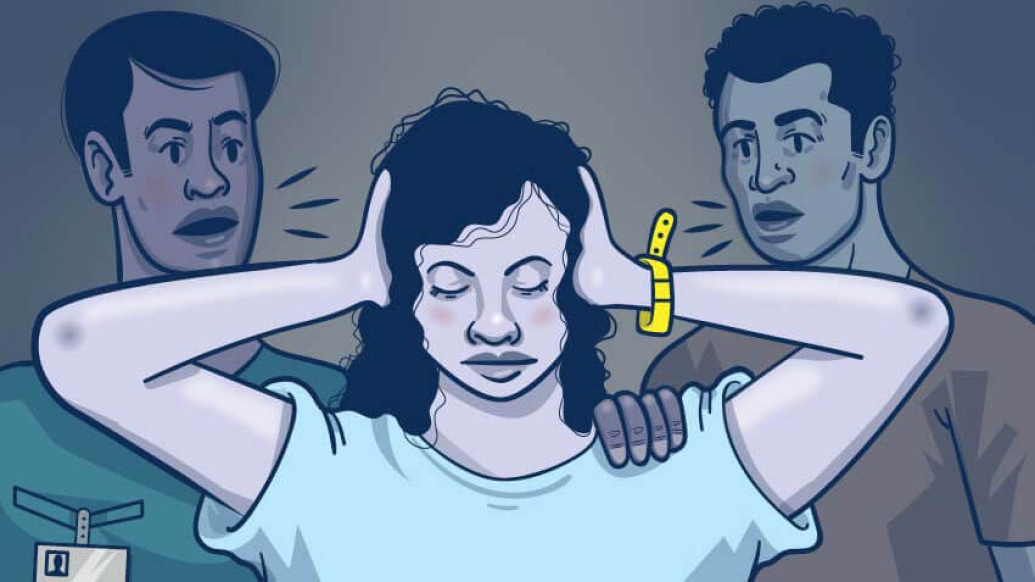How pediatric teams are working to improve diagnosis and treatment of somatic symptom and related disorders in the hospital setting.
5:00 AM
Author |

For some youth, persistent and painful physical symptoms aren't easily explained, often leaving them and their families frustrated by a long unproductive medical journey and with more questions than answers.
These children and adolescents may bounce around from primary care to specialists and be seen in emergency care or be admitted to the hospital without a clear understanding of what's driving their symptoms. Meanwhile, they face challenges functioning in daily activities, social interactions and school.
MORE FROM THE LAB: Subscribe to our weekly newsletter
The culprit behind this type of experience for many young patients: somatization, in which emotions or stress cause physical distress to the body. Symptoms, which can range from neurologic and gastrointestinal issues to pain and fatigue, aren't consistent with a physical cause and are significantly influenced by psychological factors.
But diagnosing and caring for such conditions, known as somatic symptom and related disorders, is challenging and costly.
"Somatic symptoms can be very distressing and impairing for a child, affecting everything from sleeping and eating to academics, family life and socialization," said Kristin Kullgren, Ph.D., pediatric psychologist at University of Michigan Health C.S. Mott Children's Hospital.
"These are very real symptoms, but families and patients sometimes get the message that it's 'all in their heads,' and nothing is wrong with them, which is very discouraging. Families often make recurring urgent or emergency care visits and are referred from one specialist to another without any progress.
"We wanted to find a way to standardize treatment to more efficiently care for these youth."
So Kullgren, along with Mott colleagues across multiple specialties, collaborated to develop a better system to treat this group of children. And the new model of care, described in Hospital Pediatrics, has shown to significantly improve symptoms, reduce hospital stays, and substantially lower health care costs, the team's research suggests.
The method helped reduce median costs per patient encounter by almost $60,369, according to the team's follow-up research involving nearly 400 patients aged 7-18, with an estimated annual cost savings of $1.4 million.
Standardizing diagnosis and treatment for somatic symptoms
Somatic syndrome and related disorders affect about 6% of hospitalized pediatric patients in hospital settings. Inpatient costs of managing somatic symptoms account for up to 20% of yearly health care expenditures in the United States, Kullgren noted, including frequent emergency department visits, hospitalizations, excessive diagnostic evaluations, laboratory costs and invasive procedures.
Children with this condition may experience severe headaches, abdominal pain, backaches, dizziness, nausea, irritability and poor sleep. Their symptoms may also present as seizures or paralysis because of trouble walking or physical weakness.
These are very real symptoms, but families and patients sometimes get the message that it's 'all in their heads,' and nothing is wrong with them, which is very discouraging.Kristin Kullgren, Ph.D.
Previously, youth with somatic symptom and related disorders underwent long lengths of stay with unnecessary or low value medical testing and treatments. Only after doctors couldn't determine a medical diagnosis, psychology or psychiatry teams were called in to gauge the role mental health factors were playing in the development and perpetuation of physical symptoms.
Meanwhile, children spent more time at the hospital without any improvement, and families often grew weary by the lack of answers and an organized approach to care, Kullgren said.
While some of these patients have underlying anxiety or depression and mental health needs impacting physical symptoms, others don't, she said.
"These kids were spending days or longer at the hospital or having multiple outpatient visits without getting better because they weren't getting the right treatment," Kullgren said.
"Families may have felt dismissed or unheard, especially without clear coordination with mental health providers and a road map to address how their previously functional child had significantly become impaired. There is a such a high level of frustration for both families and medical providers around caring for these kids."
Like Podcasts? Add the Michigan Medicine News Break on iTunes or anywhere you listen to podcasts.
In a partnership led by Mott pediatric psychology, pediatric psychiatry and hospitalist medicine and neurology, care teams developed a more comprehensive, holistic and multidisciplinary approach to address somatic symptom and related disorders in the hospital setting.
Care is now offered with an eye to early awareness, coordinated communication that aligns with evidence-based approaches and high-yield interventions, Kullgren said.
Now, from the beginning of a patient's journey, specialists from psychology, psychiatry, social work, neurology, emergency medicine, physical medicine and rehabilitation, nursing and primary care all work hand in hand, along with social work and child life teams.
"Together we created a unique model of care that really contributes to our understanding of how these kids can best be served. We also used less resources to care for them, driving down costs," Kullgren said.
This consistent communication across the multidisciplinary team continues through discharge to ensure families go home with the resources they need for kids to get better, whether that involves physical therapy or mental health services.
"These symptoms are often severe but in absence of a clear medical problem, families feel like they keep hitting dead ends no matter how many specialists they see. Or, they may be told the reason is stress or anxiety but aren't given a diagnosis or treatment plan," Kullgren said.
"We can now give parents the answers they need and concrete strategies to follow after they get home without long hospital stays. Our top goal is to get these kids back to functioning as quickly as possible so they can attend and do well in school, participate in the activities they enjoy, function at home and engage with peers."

Explore a variety of healthcare news & stories by visiting the Health Lab home page for more articles.

Department of Communication at Michigan Medicine
Want top health & research news weekly? Sign up for Health Lab’s newsletters today!





